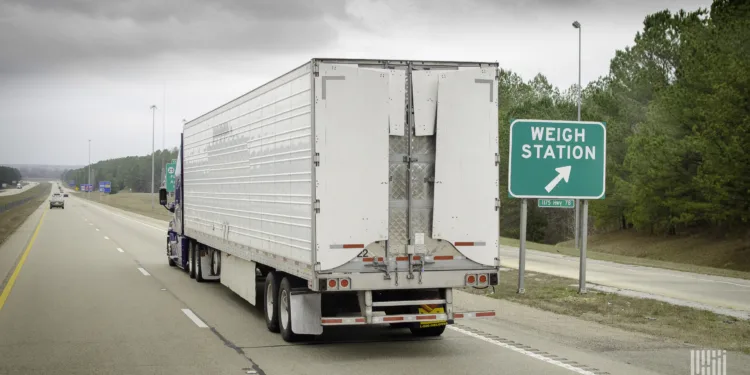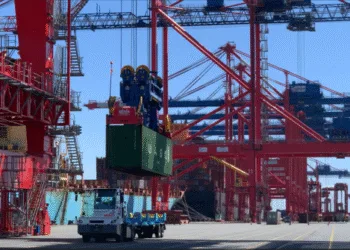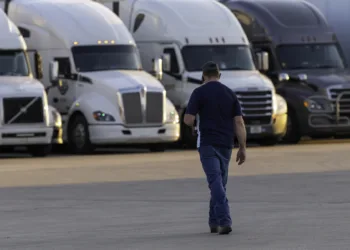WASHINGTON — Retailers are pressuring the Trump administration and lawmakers to raise truck weight limits as Congress begins shaping the next highway bill.
In comments filed in response to the U.S. Department of Transportation’s request for policy priorities in next year’s surface transportation reauthorization – the current law expires at the end of September 2026 – the Retail Industry Leaders Association (RILA) wants DOT to consider “modernizing” federal truck weight limits.
“Increasing allowable truck weights – particularly for vehicles equipped with additional axles and safety features – can significantly enhance freight efficiency, reduce the number of trips required to move goods, and lower greenhouse gas emissions,” wrote Sarah Gilmore, senior director of government affairs for the association, whose members include Target (NYSE: TGT), The Home Depot (NYSE: HD), and Dollar General (NYSE: DG).
Gilmore pointed out that some states already allow higher weight limits under controlled conditions.
“For retailers, the ability to optimize truckloads is critical to reducing transportation costs, improving supply chain sustainability, and meeting consumer demand more effectively. We encourage DOT to work with Congress to explore pilot programs and regulatory pathways that allow for increased weight limits on designated freight corridors, while ensuring safety and infrastructure integrity are maintained.”
Such pilot programs have been proposed in Congress previously, including legislation last year that would have allowed states to increase truck weights on federal interstates from 80,000 pounds to up to 91,000 pounds on six axles, and another proposal that would have allowed weight increases to 88,000 for certain auto haulers.
Legislation has been proposed this year as well, including bills to boost weight limits for logging vehicles.
But instead of reducing truck trips, relaxing federal truck size and weight rules would lead to heavier truck traffic, argues the Coalition Against Bigger Trucks (CABT).
“Heavier or longer truck combinations will reduce trucking costs. This will, in turn, increase truck use. To suggest that this increased use will be fully absorbed by increased truck capacity is a falsehood,” CABT stated in comments filed in response to DOT’s information request.
“While reducing costs for a select set of shippers may result in higher profits, bigger trucks would endanger motorists, law enforcement and first responders, damage highway infrastructure at the taxpayers’ expense, place a greater burden on commercial drivers and increase the number of trucks on the road.”
Owner-operators have opposed raising truck weight limits, as have other trucking groups. Testifying earlier this year on Capitol Hill on behalf of the Truckload Carriers Association, John Elliott, executive chairman of truckload operator Load One, acknowledged that the trucking industry was divided on the issue.
“The [less-than-truckload segment] is a small segment that endorses larger trucks, while other segments endorse heavier trucks. As an industry, truckload is by far the largest segment, and we adamantly oppose both,” Elliott said. “It comes down to safety, and bigger, heavier, longer does not represent ‘safer’ in any way.”
Related articles:
- Proposed bill would reduce restrictions for tankers
- Bill would give states new power to waive truck weight limits
- COVID-19 reenergizes truck size/weight battle
Click for more FreightWaves articles by John Gallagher.
The post Retailers, trucking clash over vehicle weight limits appeared first on FreightWaves.
















